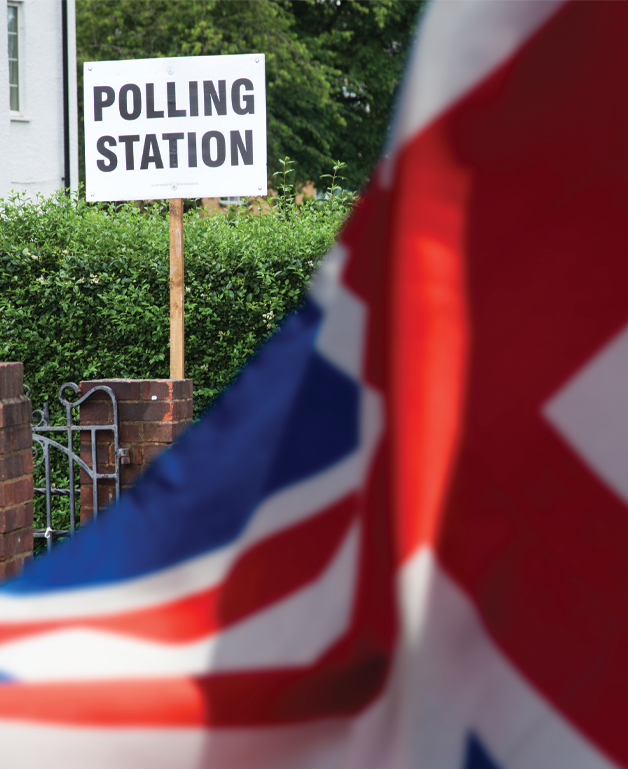Love it or hate it, we are extremely fortunate in the UK that we have the free right to vote and the choice of who to vote for in the coming 04 July election.
Previously, I never thought about what or how information was provided by all political parties and just typically went with whoever my parents voted for. However, since losing my sight and having a bit more interest in my government, I’ve been particularly keen to hear about what parties have accessibility issues in mind for our country, along with different decisions that our government discusses and plans to implement.
How Accessible Are The Methods of Communication For Disabled Voters?
The funny way around this was that I was listening to a party-political broadcast, and there were a lot of gaps in speaking with either music or something visual happening on screen. There was no audio description (AD) available, and this was not limited to one party, resulting in me missing out on key information that I may need to be aware of to make an informed decision when it comes to voting. Up to today, I’ve still not heard a broadcast that comes with an audio description. Just a note here to mention that not all the broadcasts would have needed AD, but some certainly do, especially when it comes to something so important for our country.
Similarly, when the announcement was made that there was going to be a general election, no British Sign Language (BSL) interpreter was present, restricting Deaf people from accessing that news. This got me thinking about how accessible other methods of communication from our political parties are.
I remember one day, not long ago, one of the parties knocked on my door and wanted to give me a leaflet. I asked them if they had it in an accessible format for me, for example an electronic or braille copy, but they were flummoxed on my request and said that they would get back to me about it. Guess what? I did not hear back and I can’t help but wonder what will happen this year in 2024, as I am sure they will soon come knocking.
How Accessible Are Political Communications Through The Internet?
I’m sure you’re thinking, ‘surely he must be able to get all of the information that he needs on the internet?’ Well, it is there; however, all of the parties’ websites have inaccessible areas within them. The strange thing is that by 2020, all government websites were required to be accessible and meet the Web Content Accessibility Guidelines (WCAG) standards. I must stress that each party on its own is not a government site, so, is this slipping through the net?
Digital Accessibility And Manifestos
It is too early at the point of writing this blog to see if I can access each manifesto and read them. However, watch out for part two of this blog, as I’ll soon be exploring how accessible the manifestos are.
I am sure that all of the issues within the UK that we want our government to sort out and assist in will be in their manifesto. For myself, now as a person with a disability, I would be interested to find out more about the focus from our government on specific issues such as:
- How acts of hate crime will be handled for people with disabilities, who have been targeted, physically, mentally, or online.
- Solutions for access problems, both physically and digitally.
I think, now more than ever, it is important that everyone can access the information that all the parties put out on the web. Then, each and everyone of us will have all of the facts to be able to make an informed choice.
Evaluating The Accessibility of Parties’ Candidates Across The UK
I circulated an email to my colleagues asking, “Can you find your local candidates in different parties to vote for?” As our team is spread across the UK, I thought it would give valuable feedback; however, it was not as easy as I thought it would be.
I suppose I should have looked for my candidates first and then I would have found out that they do not have their own websites, but their information is found through the main parties’ websites. However, due to the locality of Accessibility Services assessors and our technical team, three of the nation’s parties were covered and the report back confirmed that they do not reach the WCAG recommendations.
A Conclusion About How Political Information Is Conveyed
To allow for a greater reach to gain potential votes, a more accessible website to convey a parties’ information would be beneficial. This would not only benefit the parties’ themselves, but would also assist the voting public.
If you have an interest in this subject, then have a read of my blogs back in 2019 from the last election:
- Voting as a disabled person (part one)
- Voting at the General Election as a Disabled Person (part two)
Don’t forget to keep a look out for part two of this general election blog, where I’ll be focusing on accessibility issues concerning manifestos.







